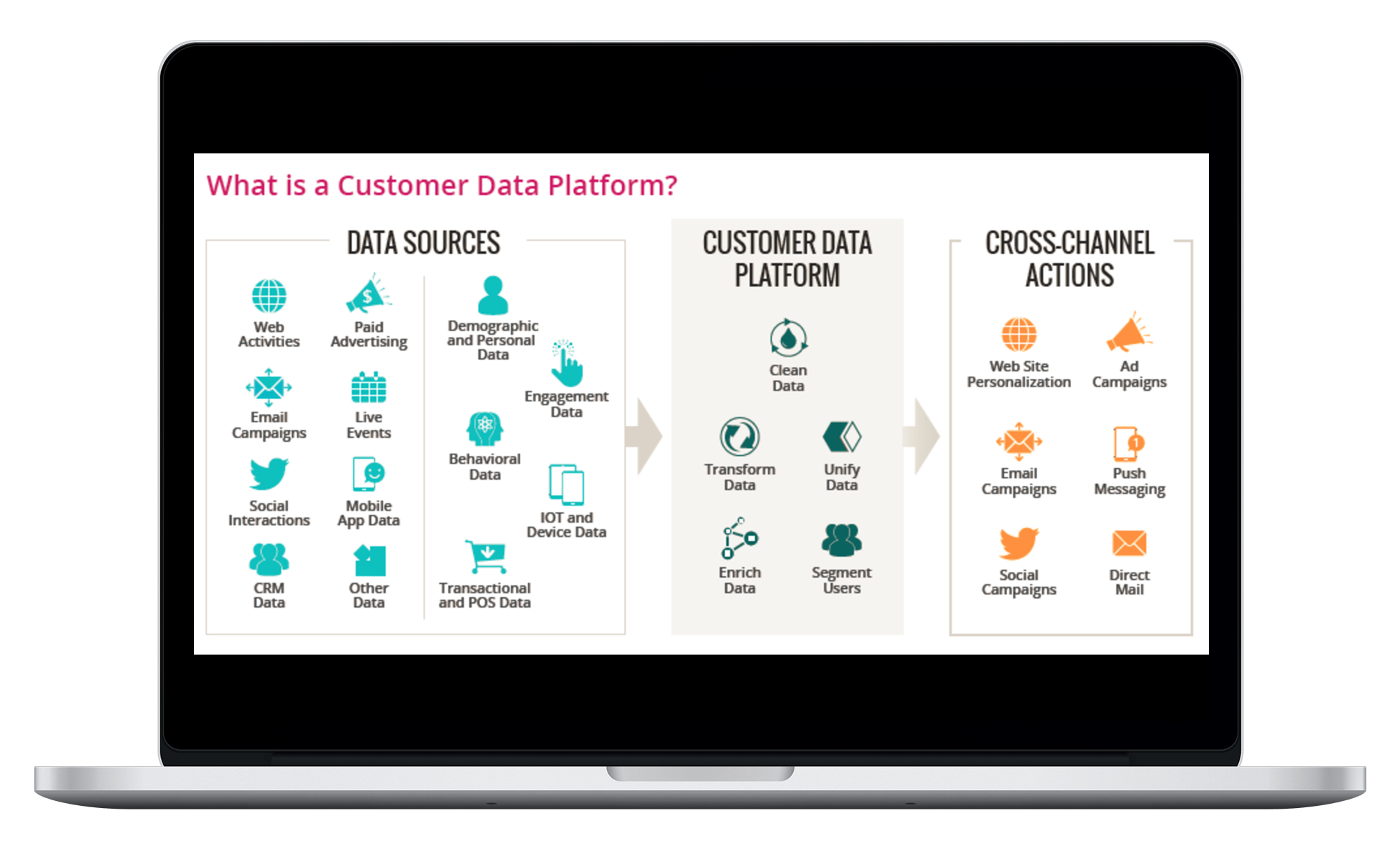What is a Consent Management Platform?
27 August, 2021
2 mins
Disclaimer: we are not a law firm. You can never be too careful regarding the law. The information we provide is marketing-oriente...
Read more
Stay tuned thanks to our Newsletter
To create impactful marketing campaigns, you need to know your customers as much as possible to make sure you’ll deliver them the product or the service that will meet their needs.
But how to be sure that you really know them? Do you even know what you want to know? Do you really know yourself? If you want to discover who you are, you might need to book an introspection session with yourself, but if you want to know more about your customers, you’ve come to the right place.
Today more than ever, with the multiplication of social media, websites and other platforms, your customer’s data are scattered on different channels. A CDP could help you centralize all of this information to ease your analysis process. Through this article, we’ll discover what Customer Data Platforms are and why they are essential to getting to know your customers.
Customer data or customer data can take so many forms: social media information, details on customer’s accounts, emails information… and relates to so many topics like behavioral data, engagement data, contact data… A Customer Data Platform aims to centralise all your customers’ data on a single platform so it can ease marketers ad campaigns creation and campaign emailing or website personalization.

A CDP can help you answer many questions, like what product does this customer usually buy? Where does he like to purchase? Where is he in his customer journey?
It’s easy to get lost between the different platforms and acronyms. Let’s make things clear, a Customer Data Platform isn’t:
So how does Customer Data Platform differ from all of them? A CDP unifies your customer data, is an all-inclusive system with real-time capability and is easily accessible to marketers.
If nowadays, 97.2% of businesses are investing in big data and IA, is it really what they need? Shouldn’t they start investing in data infrastructures that work on their business scale?
Starting with their customer data can help them:
While collecting data from online and offline sources, you can get more efficient omnichannel marketing management, allowing companies to be more competitive. By following your customer’s buyer journey, you’ll also be able to provide them with the service they need at the right time.
Most businesses only analyze 12% of the data they have. What if they could at least analyze them better by reducing data misuse?
Democratizing data and taking it off the hands of your data scientists to make it circulate between the different departments of your business makes your data understanding more effortless. Centralizing all your customer information in a single platform will help you reduce the complexity and chances of data misuse.
Aggregating all the data you’ve collected about customers from your different systems and departments helps you get a clear picture of your customers. Getting a better understanding of your customers will help you create a much better customer experience. That’s why 72% of customers engage more with personalized marketing than standardized offers.
CDP allows ready-to-use integrations, while data scientists need to handle other software like data warehouses through long and complex processes. Easier to use and more accessible, they’ll allow your marketing teams to work in full autonomy.
The end of 3rd-party cookies in 2022 will have major implications on your ability to get to know your customers. Why? You won’t be able to buy your customers’ data as you used to.
To understand your customers, you will need to collect your own data (website, social media, emails…) and analyse it on your own. It can become more complicated to collect your data and load it on your CDP in this context.
To take stock of your marketing data collection and analysis and discuss this cookieless world, contact our data team, they’ll be pleased to help you.
By Emma Jeanpierre
15 Feb, 2022